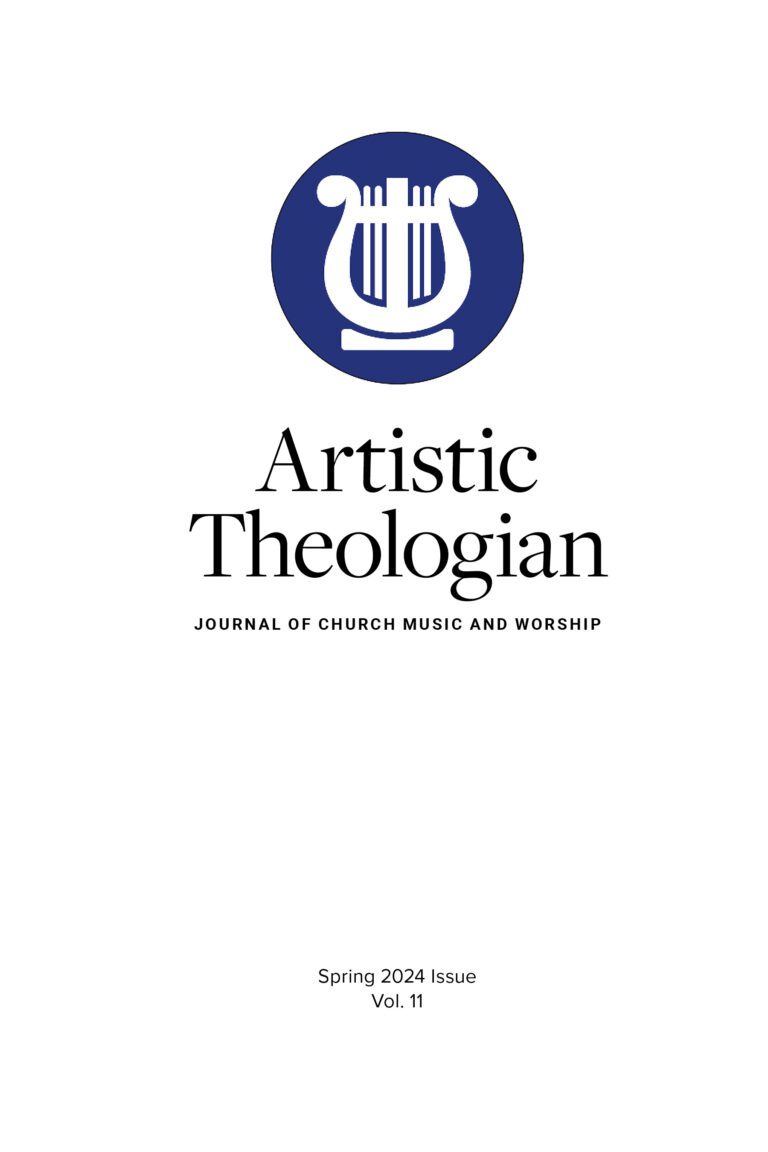
The Relationship of Doxology and Doctrine
Artistic Theologian
Volume 11, Summer 2024
Editor: Joshua A. Waggener
In Their Own Words: Slave Life And The Power Of Spirituals. By Eileen Morris Guenther. Saint Louis, Mo: Morningstar Music Publishers, 2016. 492 Pp. $32.00.
Eileen Guenther, an accomplished scholar, organist, and choral director, served as a professor of church music at Wesley Theological Seminary for more than thirty years. In addition to instructing students in courses on music and worship, Guenther led workshops around the world, presenting on such themes as music and social justice, global music, and spirituals. Her scholarly publications include a notable book on clergy-musician relations, as well as this text on spirituals, and she has been featured in The Huffington Post and The Christian Century. An interest in world music led her to serve as a visiting lecturer at Africa University in Zimbabwe, and she has spearheaded intercultural student immersion trips to South Africa.
In Their Own Words: Slave Life and the Power of Spirituals is a comprehensive piece of scholarship on the genesis, historical significance, and cultural context of the African American spiritual as viewed through the lens of a vast array of first-person accounts from the enslaved people themselves. These primary sources—derived from more than two hundred written narratives and 2,300 interviews of slaves and former slaves conducted in the 1930s (410) — emphasize the inspirational nature of the spiritual as applied to daily life for those suffering the indignity of oppression. Guenther’s purpose is to emphasize the universality of the spiritual as it applies to conditions outside of slavery (xvi), highlight a theology sourced from the King James Bible (xviii), offer a comprehensive index of the inner thoughts of the enslaved as reflected in their song texts (xix), and address the aesthetic potential of the spiritual via its community-building power and unique beauty “that speaks to the human condition —from the heart to the heart” (xix).
This nineteen-chapter text is divided by the author into three sections. Part I introduces the reader to the definition, origins, and historical performance practices of the spiritual. The first two chapters are devoted to the spirituals’ African roots and European musical influences, highlighting their unique characteristics, form, and methods of transmission. The next three chapters detail the history of the slave trade in America and includes numerous testimonies, both in narrative and interview form, of antebellum slave life. The final two chapters in Part I outline slavery’s impact on the religious life and character of both slave and master. In the eight chapters of Part II, Guenther presents historiological details of daily life as a slave, reinforcing each component with multiple first-person testimonies. These accounts provide the reader with detailed insights into slave/master relations, life in the slave quarters, vulnerable populations, work duties, rituals, slave auctions, and matters of control, rebellion, and escape. Part III marks a return to the subject of music. Chapter 17 supplies biographies for the significant early arrangers of spirituals—such as the Fisk Jubilee Singers, Harry Burleigh, and James Weldon Johnson—beginning in the post-war period and continuing through the Civil Rights movement. Chapter 18 serves as an index for subject matter frequently encountered in spirituals, listing songs relating to each of the more than forty topics. The final chapter functions as a brief synopsis of the entire book including the ways these songs have influenced other musical genres and continue to impact audiences today. Guenther provides two appendices that readers may find especially helpful in matters of programming. Appendix A lists one hundred spirituals and the specific biblical references found in each song. Appendix B features a reverse concordance of the same material, listing each book of the Bible and the corresponding spirituals.
In this seminal text Guenther has outlined African-American slave experiences as seen through letters, journals, and interviews. The author tackles this emotionally wrenching subject manner in a scholarly, rational, yet respectful manner, allowing the voices of the enslaved to find dignity in their narratives. Recognizing that not every arrangement or performance of spirituals adequately conveys the depth of suffering found in this music (42–43), Guenther’s comprehensive research aptly communicates the seriousness, inherent fear, and uncertainty of these enslaved humans and speaks of the power of the Gospel as directly seen by an oppressed people. This well-organized collection of primary sources provides ample material for the modern musician, choral director, or music minister to draw upon, adding essential nuance to any performance or congregational response.
Despite the breadth of historiological information here, there is little discussion of the spirituals’ impact upon western classical music (344, 345) and the author does not mention any Black composers, such as Florence Price or William Grant Still, who utilized elements of the spiritual in their own, highly respected compositions. Guenther also overlooks a glaring paradox: that this music — created by some of the most oppressed humans in American history — is now chiefly performed in communities and denominations that are predominantly white, wealthy, and well-trained in music. Yet it is this paradox that proves the universality of the spiritual and its unique ability to connect disparate groups.
Guenther’s detailed research allows for a deeper understanding of the texts found in spirituals, from mundane tasks of daily work to complex concepts of Christian theology, highlighting a potential to transmit the hope-filled message of the Gospel in all aspects of life. Readers should use these collected insights to promote and encourage the singing of spirituals in schools, churches, and concerts to facilitate connection with both Creator and neighbor, even across man-made divisions of race, class, and denomination.





